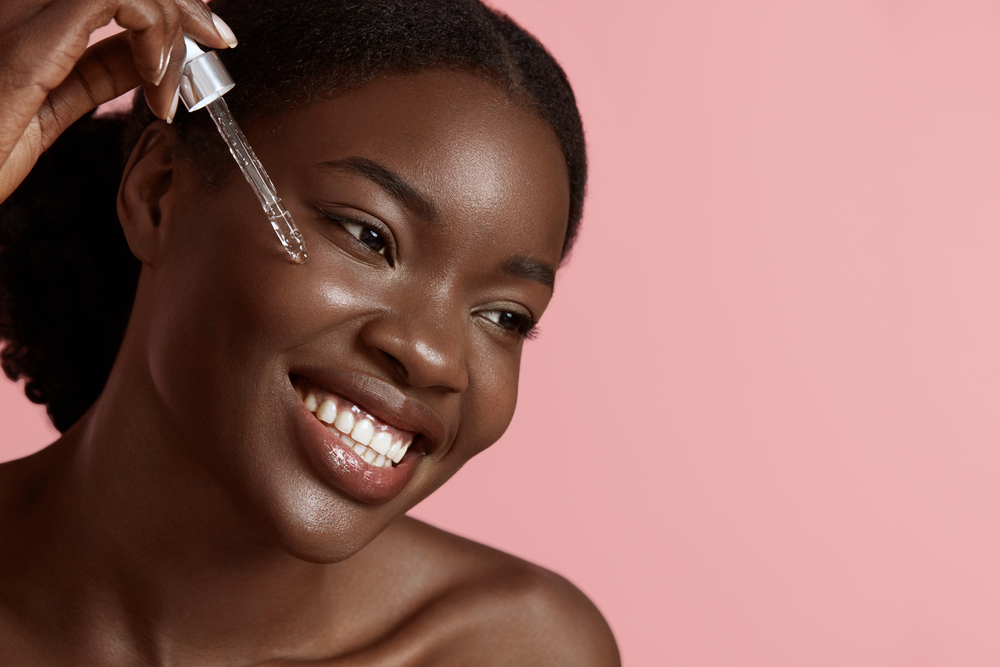Discover how specific vitamins can help you achieve the healthy, glowing skin you desire through proper nutrition and targeted supplementation
The journey to vibrant, youthful skin extends far beyond expensive creams and elaborate skincare routines. While topical products certainly play a role in maintaining skin health, true radiance begins at the cellular level, nourished by essential vitamins that support your skin’s natural functions. These powerful nutrients work from the inside out, strengthening your skin’s protective barrier, promoting collagen production, and fighting against environmental damage.
Research continues to affirm that what you consume has a profound impact on your skin’s appearance and resilience. By incorporating specific vitamins into your diet or supplement routine, you can address common skin concerns such as premature aging, dryness, and inflammation. Understanding how each vitamin benefits your skin empowers you to make informed choices for your overall skin health strategy.
Why your skin needs vitamins to thrive
Your skin serves as your body’s first line of defense against environmental threats while simultaneously reflecting your internal health. This complex organ continuously renews itself, with cells dividing and regenerating to maintain its protective functions. These processes require specific nutrients to operate efficiently.
When your body lacks essential vitamins, your skin often shows the first visible signs. Dullness, uneven texture, excessive dryness, and accelerated aging can all result from nutritional deficiencies. By contrast, skin properly nourished with vital nutrients appears more luminous, maintains better elasticity, and recovers more quickly from stress and damage.
The relationship between nutrition and skin health works in both directions. While nutritional deficiencies can compromise skin appearance, existing skin conditions can sometimes indicate underlying nutritional imbalances. This connection highlights why addressing skin concerns often requires a holistic approach that considers both external care and internal nourishment.
Vitamin C: The collagen-building powerhouse
Among the most studied and beneficial nutrients for skin health, vitamin C stands out for its multifaceted role in maintaining skin vitality. This water-soluble vitamin acts as a powerful antioxidant, neutralizing free radicals that damage skin cells and accelerate aging. Beyond its protective function, vitamin C plays an essential role in collagen synthesis, the protein that provides structure and firmness to your skin.
As you age, collagen production naturally declines, leading to the formation of fine lines and decreased elasticity. Regular consumption of vitamin C helps maintain collagen levels, resulting in firmer, more resilient skin that resists wrinkling. This nutrient also helps repair damaged tissue, making it valuable for healing blemishes and supporting overall skin integrity.
Incorporating vitamin C-rich foods into your daily diet provides the building blocks your skin needs to maintain its youthful structure. Citrus fruits, strawberries, bell peppers, broccoli, and kiwi all contain abundant amounts of this skin-saving nutrient. For enhanced benefits, many dermatological studies suggest using topical vitamin C serums containing 10-20% concentration, which can penetrate the skin and provide direct benefits to collagen-producing cells.
For those with inflammatory skin conditions like acne or rosacea, vitamin C offers additional benefits through its anti-inflammatory properties. Regular consumption and topical application may help reduce redness, support healing, and prevent post-inflammatory hyperpigmentation that often follows breakouts.
Vitamin E: The moisturizing protector
Vitamin E functions as another crucial antioxidant that safeguards your skin against oxidative stress while supporting its natural moisture barrier. This fat-soluble vitamin occurs naturally in your skin’s sebum, helping to keep your complexion properly hydrated and protected. When adequately supplied, vitamin E helps maintain skin softness and prevents the dryness that can lead to irritation and premature aging.
Beyond its moisturizing benefits, vitamin E plays a significant role in protecting skin cells from UV damage. While not a replacement for sunscreen, this vitamin helps neutralize the free radicals generated by sun exposure, potentially reducing the long-term damage caused by UV rays. This protective function makes vitamin E particularly valuable for those concerned about photoaging and hyperpigmentation.
You can boost your vitamin E intake through foods like almonds, sunflower seeds, avocados, spinach, and plant oils. These sources provide the vitamin in forms readily absorbed and utilized by your body. Though many skincare products contain vitamin E, research suggests that dietary consumption often provides more comprehensive benefits for overall skin health than topical application alone.
When combined with vitamin C, vitamin E demonstrates enhanced protective capabilities. These vitamins work synergistically, with vitamin E regenerating vitamin C after it neutralizes free radicals, creating a more effective antioxidant network. This partnership makes consuming both vitamins particularly beneficial for comprehensive skin protection.
Vitamin A: The cellular renewal activator
Vitamin A stands as a cornerstone in skin health, regulating cell production and turnover—the processes that keep your skin looking fresh and vibrant. This essential nutrient helps your skin shed old cells and generate new ones, preventing the buildup that can lead to dull, rough texture and clogged pores. Without adequate vitamin A, skin becomes dry, flaky, and more prone to various dermatological issues.
In skincare, retinoids (derivatives of vitamin A) represent some of the most research-supported ingredients for addressing multiple concerns including fine lines, uneven texture, and acne. These compounds work by accelerating cell turnover, stimulating collagen production, and regulating oil production in the skin. Their effectiveness makes them a staple in anti-aging and acne treatment regimens.
You can incorporate vitamin A into your diet through colorful fruits and vegetables like sweet potatoes, carrots, spinach, and mangoes—all rich in beta-carotene, which your body converts to vitamin A. Animal products like liver, eggs, and full-fat dairy provide direct sources of preformed vitamin A, which is more readily utilized by your body.
While vitamin A offers remarkable benefits for skin health, balance remains crucial. Excessive supplementation can lead to toxicity with symptoms including dry skin, hair loss, and more serious health concerns. Most nutrition experts recommend obtaining this nutrient primarily through diet unless specifically directed by a healthcare provider.
Vitamin D: The sunshine nutrient your skin creates
Vitamin D holds a unique position in skin health because your skin both produces and benefits from this essential nutrient. When exposed to UVB rays, your skin synthesizes vitamin D, which then circulates throughout your body to support various functions, including skin cell growth, repair, and metabolism.
Beyond its role in skin cell regeneration, vitamin D helps strengthen your skin’s immune system, potentially reducing inflammation and infection risk. This benefit makes adequate vitamin D levels potentially advantageous for those with inflammatory skin conditions like psoriasis, eczema, and certain types of dermatitis. Research continues to explore how vitamin D supplementation might complement traditional treatments for these conditions.
While sun exposure represents the most natural method for obtaining vitamin D, concerns about skin cancer and photoaging require a balanced approach. Brief, controlled sun exposure (typically 10-15 minutes several times weekly) helps maintain vitamin D levels without significantly increasing skin damage risk. For those living in northern climates or with limited outdoor access, food sources like fatty fish, egg yolks, and fortified products provide alternative sources.
The relationship between vitamin D and skin health highlights an interesting paradox—while sunlight helps produce this vital nutrient, excessive UV exposure damages skin and accelerates aging. This balance underscores the importance of moderate, protected sun exposure combined with proper nutrition for optimal skin health.
Niacinamide: The multitasking B vitamin
Niacinamide, also known as vitamin B3, has emerged as a versatile skincare ingredient praised for addressing multiple concerns simultaneously. This water-soluble vitamin helps build proteins in the skin and locks in moisture by strengthening the protective barrier function. This fortification helps prevent water loss and protects against environmental irritants that can trigger inflammation and damage.
Regular use of niacinamide can visibly improve skin texture, reduce redness, minimize enlarged pores, and regulate sebum production. These wide-ranging benefits make it suitable for nearly all skin types, from dry and sensitive to oily and acne-prone. For those with specific concerns like hyperpigmentation, research suggests niacinamide may help fade dark spots by inhibiting melanin transfer to skin cells.
Incorporate niacinamide into your routine through foods like mushrooms, green peas, avocados, and whole grains. For targeted skin benefits, look for serums and moisturizers containing 2-5% niacinamide, which studies indicate provides optimal results without irritation. This concentration effectively delivers the vitamin’s benefits to skin cells, improving barrier function and overall appearance.
The anti-inflammatory properties of niacinamide make it particularly valuable for reactive or sensitized skin conditions. By calming irritation and supporting barrier repair, this vitamin helps restore skin comfort and resilience, making it a valuable addition to any comprehensive skin health regimen.
Beyond vitamins: Comprehensive skin nutrition
While vitamins play essential roles in skin health, they function best as part of a holistic approach to skincare and general wellness. Adequate hydration supports all skin functions, helping transport nutrients to cells and remove waste products. Aim for at least eight glasses of water daily, adjusting based on activity level and climate for optimal skin hydration.
Antioxidant-rich foods extend beyond those high in vitamins, including berries, green tea, dark chocolate, and spices like turmeric and cinnamon. These foods contain polyphenols and other compounds that combat oxidative stress and inflammation, complementing the work of vitamins in protecting skin cells from damage.
Essential fatty acids, particularly omega-3s found in fatty fish, walnuts, and flaxseeds, support skin barrier function and help manage inflammation. These fats integrate into cell membranes, improving their ability to retain moisture and resist irritation. Including sources of healthy fats in your diet contributes significantly to skin resilience and appearance.
Quality sleep allows your skin to repair itself and regenerate cells. During deep sleep phases, your body releases growth hormone, which facilitates cellular repair and renewal. Consistently getting 7-8 hours of quality sleep significantly impacts skin appearance and health, working alongside proper nutrition to maintain skin vitality.
Practical applications for everyday skin health
Implementing a vitamin-rich approach to skin health need not be complicated. Start by adding colorful fruits and vegetables to each meal, aiming for variety to ensure a broad spectrum of nutrients. Consider keeping a food journal to track how dietary changes affect your skin’s appearance and condition over time.
When selecting skincare products, look for formulations containing stable forms of vitamins like C, E, A (retinol), and niacinamide. These ingredients work synergistically with the vitamins you consume, enhancing their benefits through direct application to the skin. Remember that consistency matters more than occasional treatments—both with nutrition and topical care.
For those considering supplements, consult with a healthcare provider to identify specific deficiencies that might affect your skin. Blood tests can reveal nutritional gaps that targeted supplementation might address. This personalized approach ensures you receive appropriate dosages without risking the complications that can come with excessive intake of certain vitamins.
External protection remains crucial even with proper internal nutrition. Daily sunscreen application with SPF 30 or higher prevents premature aging and reduces skin cancer risk. Gentle cleansing removes impurities without stripping natural oils, while appropriate moisturizers help maintain barrier function, complementing the work of vitamins from within.
When to seek professional guidance
While nutritional approaches to skin health offer significant benefits, certain conditions require professional medical attention. Persistent rashes, sudden changes in skin texture or color, severe acne, or unusual growths warrant consultation with a dermatologist. These symptoms may indicate issues beyond nutritional deficiencies that require specific treatment.
Those with existing medical conditions should discuss vitamin supplementation with their healthcare providers, as certain medications can interact with supplements or affect how your body processes nutrients. This consultation is particularly important for fat-soluble vitamins like A and E, which can accumulate in the body and potentially cause toxicity when taken in excessive amounts.
For personalized skincare advice, certified dermatologists can evaluate your unique skin type and concerns, recommending appropriate combinations of topical treatments, dietary adjustments, and lifestyle modifications. This professional guidance helps you develop a comprehensive approach to skin health that addresses your specific needs and goals.
Remember that visible improvements in skin health often require time and consistency. While some benefits may appear within weeks, significant changes in skin texture, tone, and resilience typically develop over months of proper nutrition and care. This timeline reflects the natural turnover rate of skin cells and the gradual nature of collagen remodeling.
In the pursuit of healthy, radiant skin, remember that vitamins represent powerful tools that work most effectively as part of a balanced lifestyle. By nourishing your skin from within while protecting it from external damage, you create the conditions for optimal skin health at any age. This integrated approach acknowledges that true beauty reflects overall wellness, with your skin serving as a visible indicator of your body’s nutritional status and general health.












